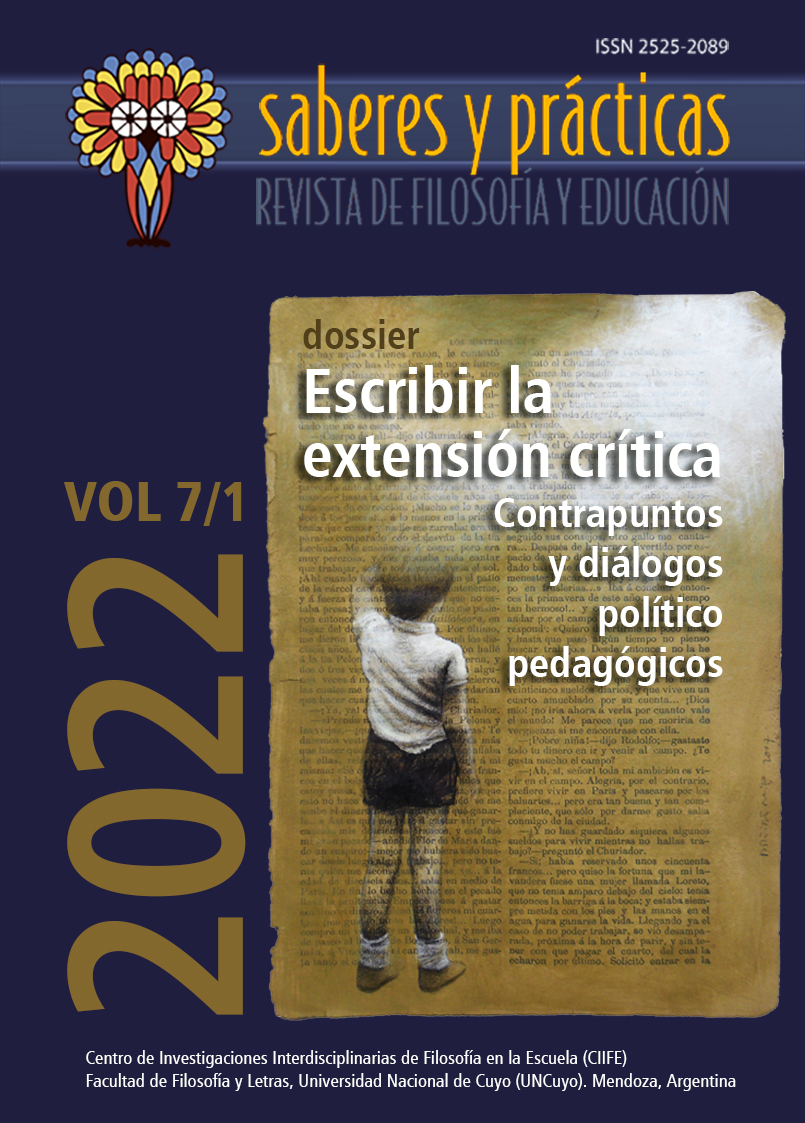Reflection Connected With Educational Space, About Human Condition. Cinema as an Approach Tool
DOI:
https://doi.org/10.48162/rev.36.047Keywords:
Human condition, the representable, the unrepresentable, education cinemaAbstract
Philosophical Anthropology provides the framework for the theme that this presentation calls for. In the philosophical field, the theoretical framework is based, firstly on the thought of Nietzsche, taking into account the status that it assigns to the body. Second, Rancière offers contributions regarding the controversial relationship between the representable and the unrepresentable. Third, the guide is provided by Walter Benjamin's cultural critic, who seeks to reveal the influence of cinema on the mass that can see themselves on the screen. I move the treatment of cinema as a useful resource to the educational level. To this end, I choose film scenes where I try to apply the categories and determinations analyzed to offer them as a tool for reflection on the human condition.
Downloads
References
Benjamin, W. (2013). La obra de arte en la época de su reproducción mecánica. Amorrortu.
Eagleton, T. (2005). Ideología. Una introducción. Paidós.
Kant, I. (2005). Crítica del juicio. Losada.
Martínez, L. (2014). Charles Chaplin. Memoria del hombre destartalado. El Mundo. https://www.elmundo.es/cultura/2014/10/29/544fde5fe2704e536d8b4587.html
Molina, L. (2017). El cuerpo y el devenir de las fuerzas en Nietzsche. Biblos.
Nietzsche, F. (1995). Así habló Zaratustra. Alianza.
Nietzsche, F. (2005). En Parmeggiani, M., Fragmentos póstumos en torno a “Conocimiento y subjetividad”. Contrastes. Revista Internacional de Filosofía, X(2005), 177-204. https://doi.org/10.24310/Contrastescontrastes.v0i0.1895
Noriega, G. (2018). “Shoah”, el desgarrador documental sobre el Holocausto, narrado por sus sobrevivientes y victimarios. Infobae. https://www.infobae.com/america/cultura-america/2018/07/10/shoah-el-documental-que-narra-el-holocausto-a-traves-de-las-voces-de-sus-sobrevivientes-y-victimarios/
Paredes, N. (2020). El modelo de desarrollo capitalista es una especie de virus para nuestro planeta. Entrevista con el antropólogo Philippe Descola. BBC News. https://www.bbc.com/mundo/noticias-internacional-53066587
Rancière, J. (2016). Malestar en la Estética. Capital Intelectual.
Ríos Moyano, S. y Escalera Pérez, R. (2014). El arte en el cine y su uso como ampliación del conocimiento del hecho artístico. El futuro del pasado, 5, 65-89. https://doi.org/10.14516/fdp.2014.005.001.003
Published
How to Cite
Issue
Section
License
License
This work is licensed under a Creative Commons Attribution-NonCommercial-ShareAlike 2.5 Argentina License.





















